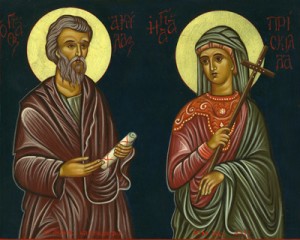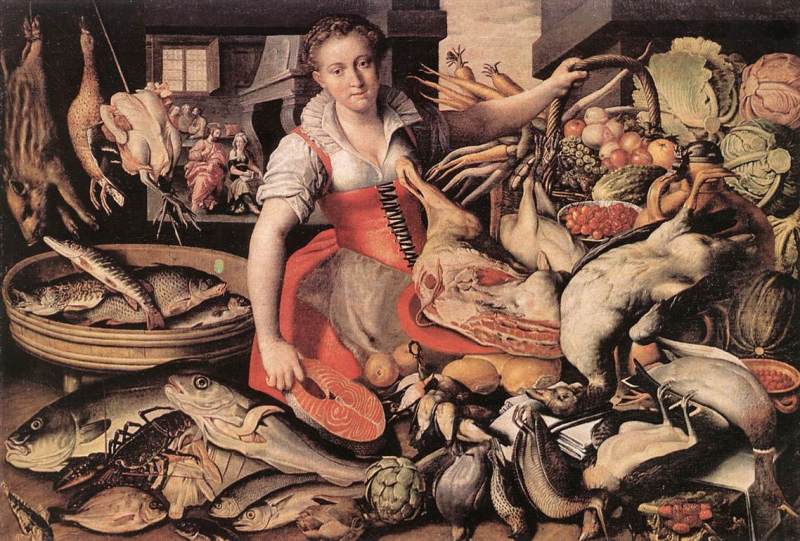 I am reading Nicola Griffith’s novel, Hild, which tells the story of Hilda of Whitby. It is a richly detailed historical novel that weaves a wonderfully plausible story of the life Hilda could have lived. Griffith’s prose borders on the poetic, and her descriptions of Hild’s spiritual life are sublime. I highly recommend her novel. It’s keeping me up until 1:00 and 2:00 in the morning because I have to know what happens next to Hild. Since I’ve been living and breathing Hild for the last couple of weeks, I’ve decided to re-post my own work of one of my favorite women leaders in the early church: St. Hilda of Whitby.
I am reading Nicola Griffith’s novel, Hild, which tells the story of Hilda of Whitby. It is a richly detailed historical novel that weaves a wonderfully plausible story of the life Hilda could have lived. Griffith’s prose borders on the poetic, and her descriptions of Hild’s spiritual life are sublime. I highly recommend her novel. It’s keeping me up until 1:00 and 2:00 in the morning because I have to know what happens next to Hild. Since I’ve been living and breathing Hild for the last couple of weeks, I’ve decided to re-post my own work of one of my favorite women leaders in the early church: St. Hilda of Whitby.
Hilda was one of the most powerful religious leaders in England during the 7th century. She was the abbess of a dual monastery of monks and nuns in Whitby. She held the same power of the bishops of the day, counseled kings, and five bishops came from her monestary.
Hilda was born in 614 CE to Hereric, the nephew of the king of Northumbria. She was baptized at the age of 13, and at the age of 33 she made the decision to become a nun. She was planning on joining her sister, Hereswith, who had established a convent on the fringe of Paris. She went to East Anglia where her nephew was king to prepare to sail to France, but Aidan, the apostle of Northumbria asked her to return to Northumbria. She obeyed, and he put her in charge of a small group of sisters on the north bank of the Wear river. After a year she was called to be the Abbess of Hartlepool. She stayed there for seven years until she built and organized a new monastery at Whitby on the dark cliffs overlooking the Northern Sea.
For thirty years Hilda was in charge of Whitby which was a monastery for both men and women. She ran a little city: there was a school, people to feed and clothe, travelers to provide lodging for, and discipline to be kept. She was not only in charge of monks and nuns, but also serfs who worked the land around the monastery. Kings, rulers, and bishops came to her for advice and counsel. In the midst of civil wars, Whitby spread the Christian faith. Whitby was a light shining for the gospel of love, forgiveness, and reconciliation in a time of wars and hatred. Venerable Bede tell us:
When she had for some years governed this monastery, wholly intent upon establishing a regular life, it happened that she also undertook either to build or to arrange a monastery in the place called Streaneshalch [Whitby], which work she industriously performed; for she put this monastery under the same regular discipline as she had done the former; and taught there the strict observance of justice, piety, chastity, and other virtues, and particularly of peace and charity; so that, after the example of the primitive church, no person was there rich, and none poor, all being in common to all, and none having any property. Her prudence was so great, that not only indifferent persons, but even kings and princes, as occasion offered, asked and received her advice; she obliged those who were under her direction to attend so much to reading of the Holy Scriptures, and to exercise themselves so much in works of justice, that many might be there found fit for ecclesiastical duties, and to serve at the altar (Ecclesiastical History, Book 4, Chapter XXIII).
While Hilda was the abbess of Whitby, it was one of the spiritual centers of England. She ruled a vast territory around Whitby, even providing soldiers in times of war. This was not unusual for the time. Abbesses managed their own realms and handled the finances to run them. Normally their domains were ruled by the pope bypassing the local bishop. Abbesses also “appointed local parish priests, heard confessions and cared for the material and spiritual needs of their people” (Grenz with Kjesbo, 41). There is also evidence that these women were ordained with the signs of the office of bishop: “the miter, ring, crosier, gloves, and cross”; however, later writings seem to replace “ordained” with “blessed,” obscuring the leadership role these women did play in the early church (ibid).
Hilda came to be known as “Mother” to her community. Many boys came to the monastery to be educated by her. Five of them became bishops: Bosa, Bishop of York; Hedda, Bishop of Dorchester and Winchester; Oftfor, Bishop of Worcester, and John of Gexham.
The story of Caedmon shows Hilda’s ability to bring out the best in others. Caedmon was always despondent because he could not sing after supper as was the custom of the day. One evening after leaving the festivities, he fell asleep and dreamed that Jesus came to him and told him to sing him a song about creation. The next day he told Hilda of the dream and sang the song he composed. Hilda recognized his talent and brought him into the monastery to devote himself to writing songs of Biblical stories in the Anglo-Saxon language. This is the first time since Latin became the official language of the western church that Scripture was translated into the vernacular. For the first time the Anglo-Saxons could learn and understand Scripture because it was in their own language. Caedmon’s poems are the earliest form of Anglo-Saxon poetry in existence (Baring-Gould 226).
In 664 CE HIlda hosted the first Synod of Whitby by order of the king of Northumbria, Oswy (who was her cousin). This synod was called by the king to peacefully solve the differences the Celtic tradition had with the Roman tradition, which included calculating the date of Easter. Historian Joanna McNamara notes, “Hild assumed a prestige usually reserved for bishops when she presided over the synod where the Irish and Roman churches competed for the allegiance of the Northumbrian king” (p. 127). The synod voted to align itself with the Roman branch of the Church. Although HIlda had been raised in the Celtic tradition, she obeyed and changed her monastery accordingly. This synod shaped the way Christianity would grow and develop in England, and “the fact that the synod, attended by all the leading churchmen of the isles, was held at a monastery ruled by a woman is a tribute to Hilda’s importance among her contemporaries” (Ranft, 118).
Hilda died in 680 CE after seven years of weak health. She was 66 when she died. These are Bede’s final words about her:
Thus this servant of Christ, Abbess Hilda, whom all that knew her called Mother, for her singular piety and grace, was not only an example of good life, to those that lived in her monastery, but afforded occasion of amendment and salvation to many who lived at a distance, to whom the fame was brought of her industry and virtue.
O God of peace, by whose grace the Abbess Hilda was endowed with gifts of justice, prudence, and strength to rule as a wise mother over the nuns and monks of her household, and to become a trusted and reconciling friend to leaders of the Church: Give us the grace to recognize and accept the varied gifts you bestow on men and women, that our common life may be enriched and your gracious will be done; through Jesus Christ our Savior, who lives and reigns with you and the Holy Spirit, one God, now and for ever. Amen. (From the The Saint Helena Breviary, Personal Edition)
Sources:
Sabine Baring-Gould Virgin Saints and Martyrs (Hutchinson and Company, London, England: 1900).
Shawna Renee Bound, Your Daughters Shall Prophesy: A Biblical Theology of Single Women in Ministry (unpublished thesis, 2002).
Edith Deen, Great Women of the Christian Faith (New York: Harper and Row Publishers, Inc., 1959; reprint Uhrichscile, OH: Barbour and Company, Inc.).
Stanley J. Grenz with Denise Muir Kjesbo, Women in the Church: A Biblical Theology of Women in Ministry (Downers Grove, IL: InterVarsity Press, 1995).
Kate Lindemann, “Hild of Streonshalh 614-680 CE” at Women-Philosphers.com (http://www.women-philosophers.com/Hild-of-Streonshalh.html accessed on November 20, 2008).
Joanna McNamara, Sisters in Arms–Catholic Nuns Through Two Millennia (Harvard University Press, Cambridge: 1996).
Patricia Ranft, Women and Spiritual Equality in Christain Tradition (Palgrave Macmillan, Houndmills, Basingstoke, Hampshire, England: 2000).
(No affliate links)





